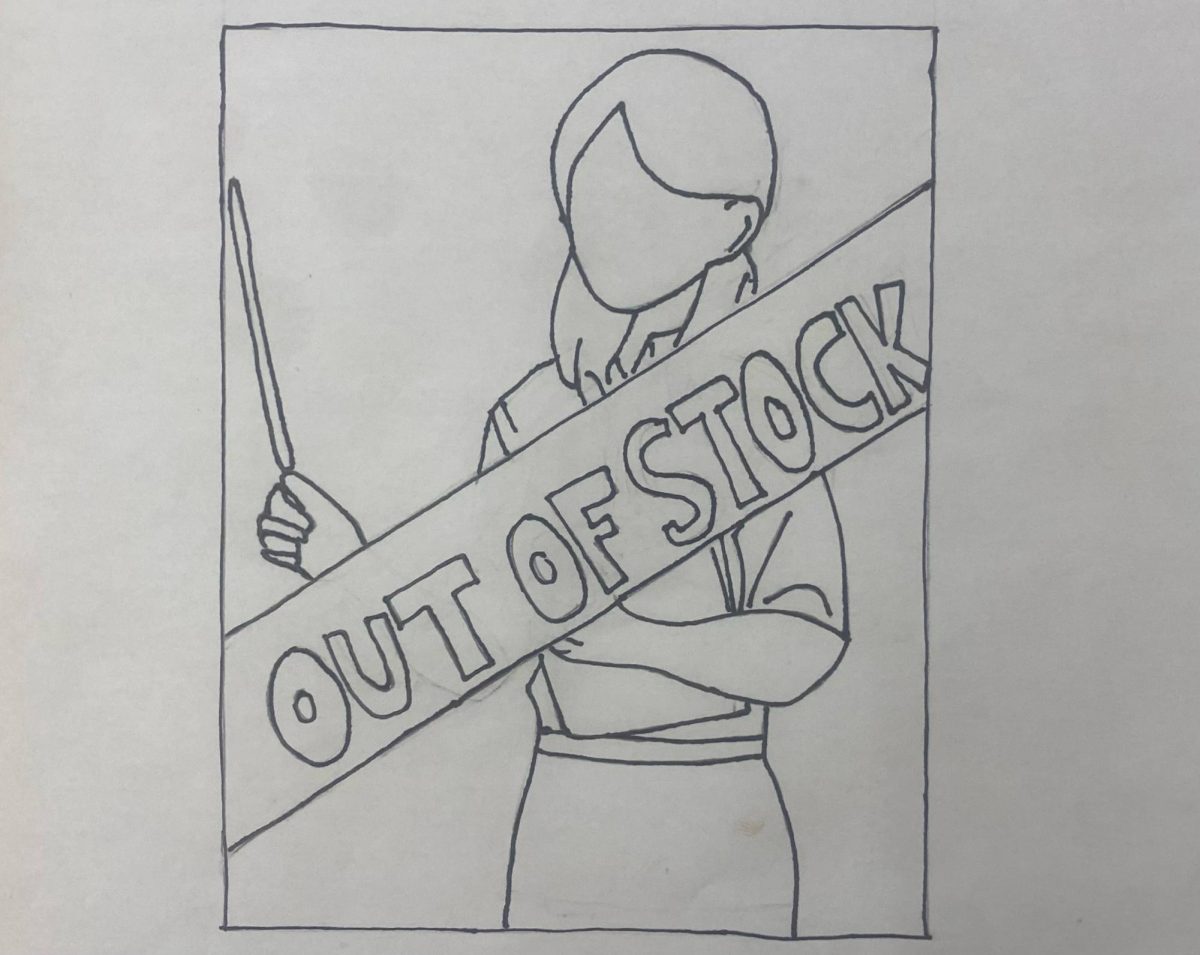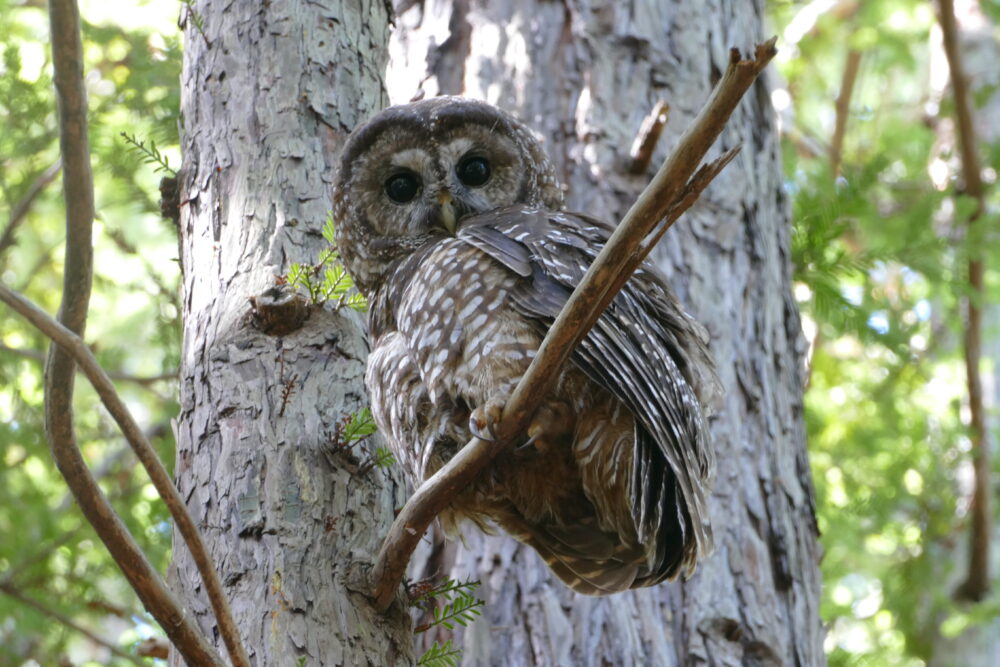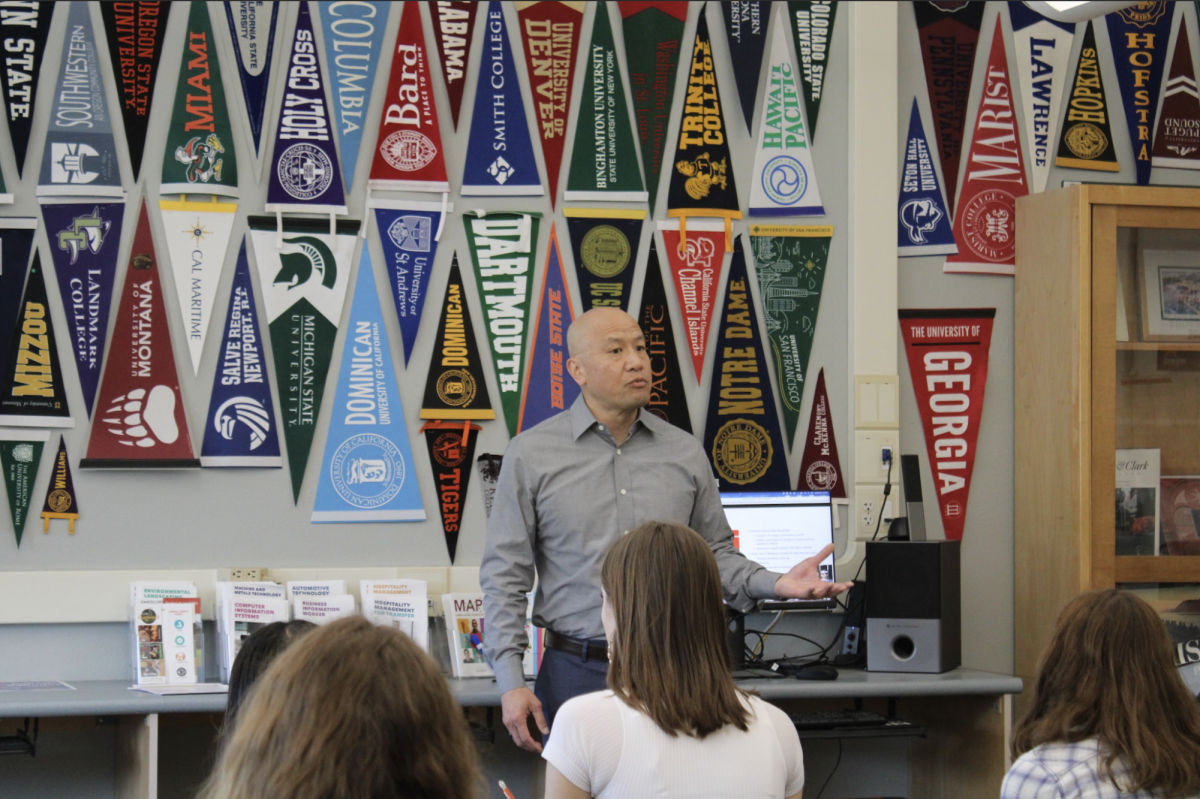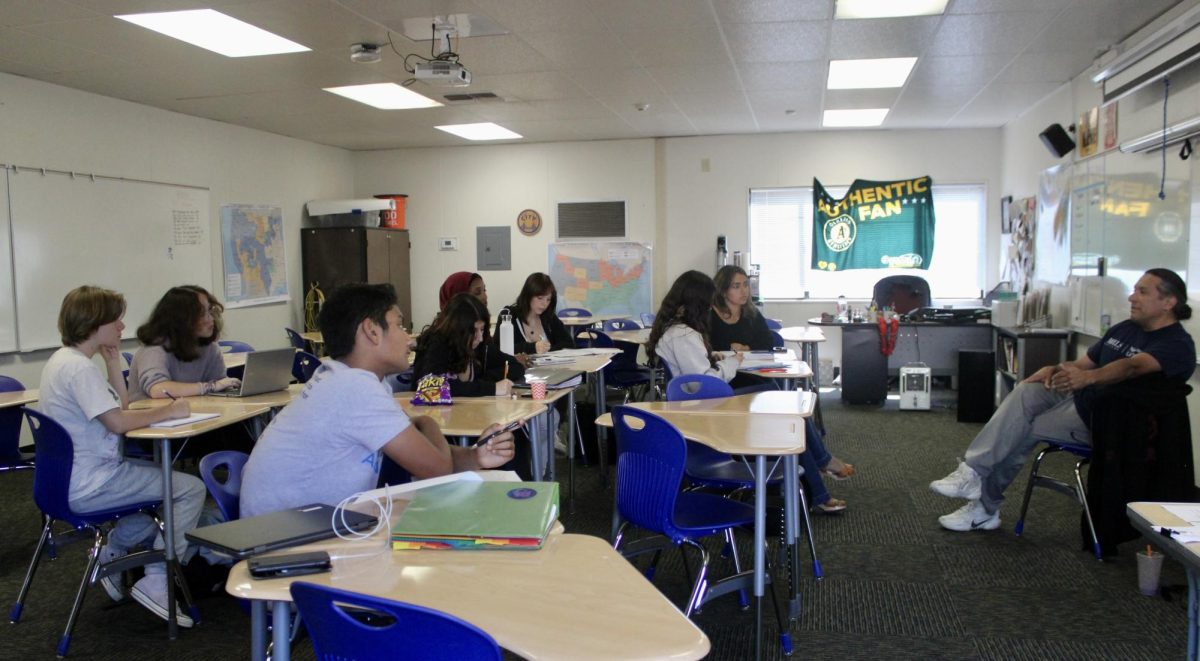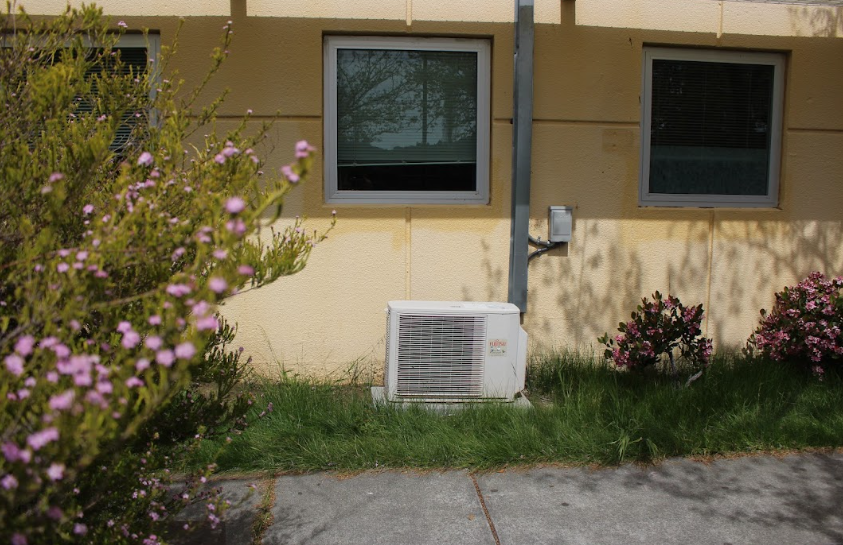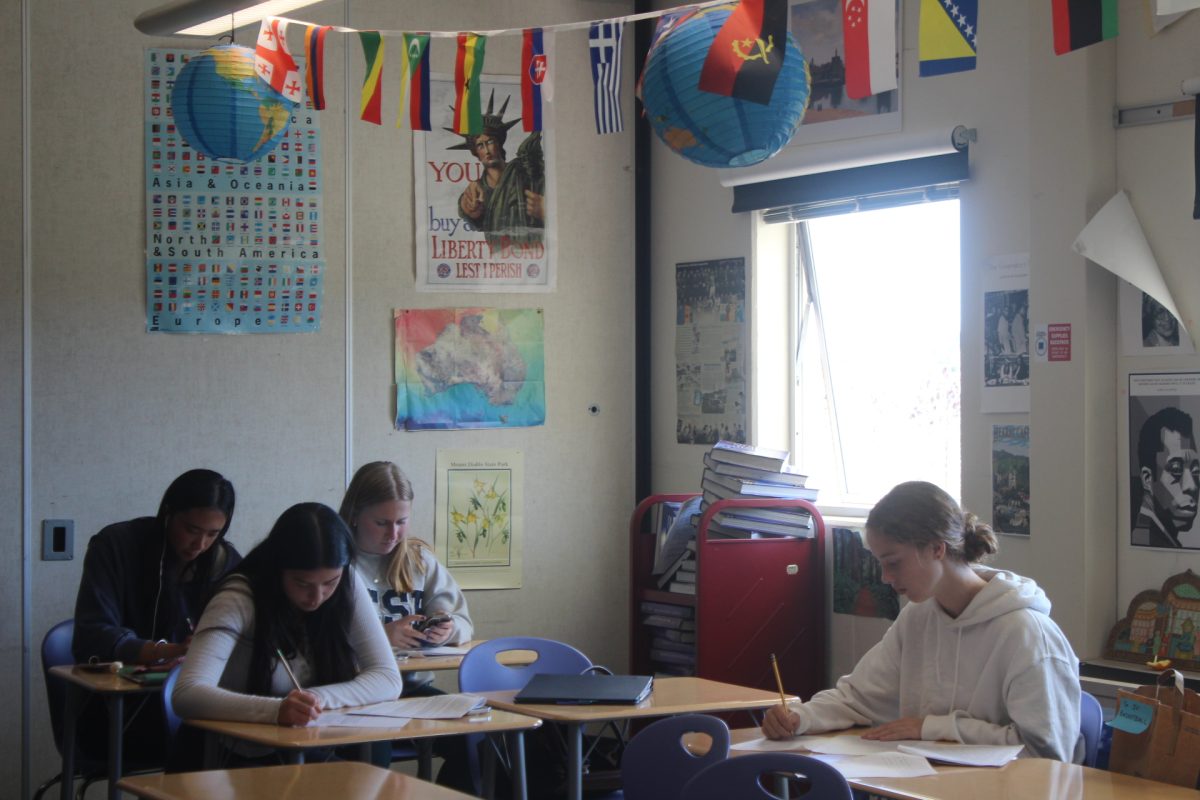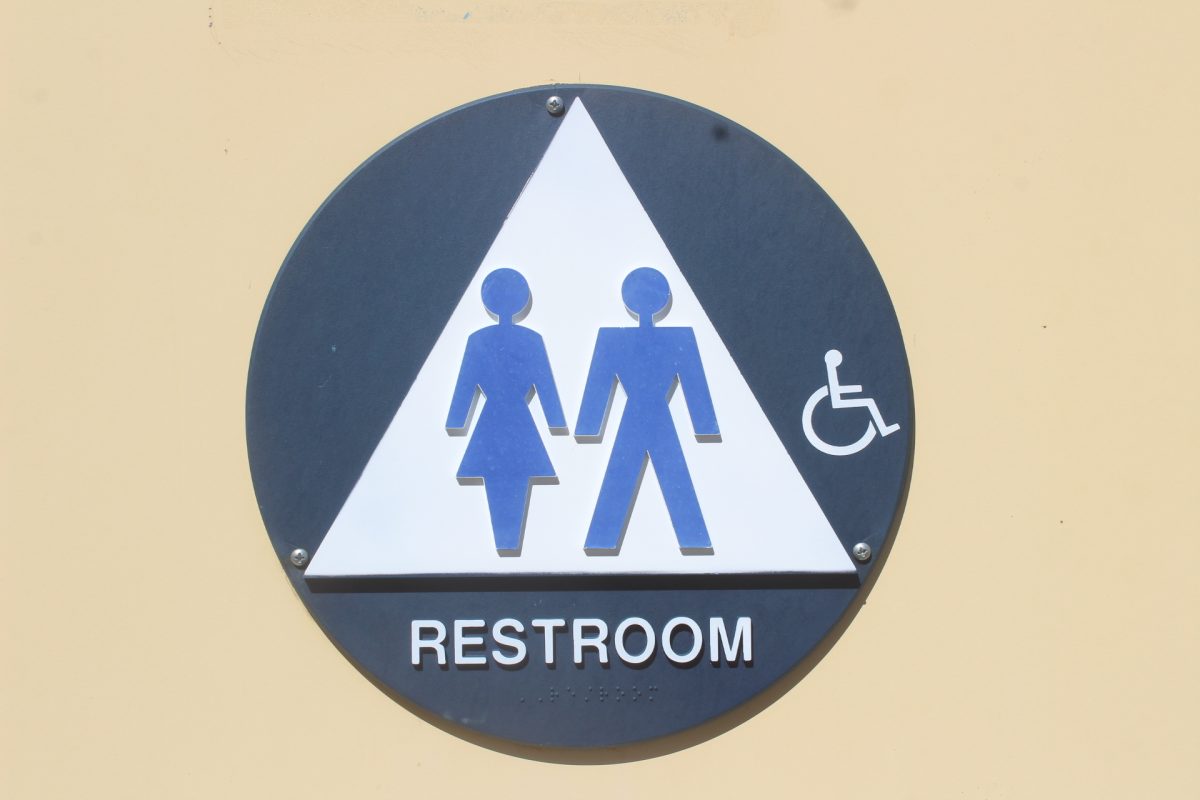Before Sustainability Week’s long Thursday lunch period even began, a line of students snaked across the concrete walkways of the South Lawn to an organic ice cream stand, and a 31 percent increase in students biking to school left the bike racks more occupied than usual.
This year’s Sustainability Week was an event whose purpose was to promote environmentally sustainable practices among students, was distinguished by mixed opinions about the success of the event.

Despite the week’s successes, some students felt as though their vision of Sustainability Week failed to come to full fruition.
“Sustainability Week was not a success. It makes me feel very pessimistic about the whole ‘save the Earth’ thing,” said senior Jeremy Becker, who spoke at last week’s Turn the Tide event last Thursday.
Both Becker and senior Olivia Moskowitz, Trade 4 Hope President, said they felt as though a feeling of apathy on the part of students and teachers contributed to what they described to be an inadequate event that did not live up to their expectations.
“The problem with Sustainability Week is that we know what’s happening, but nobody’s really pushing us to do it,” Moskowitz said.
Science teacher and event organizer Joe Stewart said that students’ habits play a big part in contributing to this general feeling of apathy.
“A theme that I’ve noticed in my years running the Sustainability Festival is that people care and people know – around here, anyway – the basics,” he said. “The most challenging aspect is getting that knowledge to actually affect habits in teens.”
Stewart said that students are often more likely to practice sustainability if they are forced to do so by external causes.
According to data from a study Stewart conducted, there was a 62 percent increase in students biking to school when Doherty Drive closed. He noted that this increase was two times greater than that which was prompted by Sustainability Week.
“The closure of Doherty Drive forced people to change their habits, so they did,” he said.
Moskowitz said she thought that teachers could have made more of an effort to sign up for workshops and integrate their curricula with Sustainability Week.
While at least one teacher had signed up for each workshop of the week, the vast majority of these teachers were from the science department.
One of these guest speakers, who spoke several times during Sustainability Week, was Executive Director of Next Generation Ellen Donald.
Next Generation, an organization originally founded for the purpose of helping youth understand the war in Iraq and organizing peace protests, now strives for environmental education and action.
Next Generation brought in most of the guest speakers, worked with teachers like Stewart to organize relevant lesson plans, and set up a festival midway through the week. The organization played a big part in the facility of Sustainability Week.
Donald said that with issues like improving global sustainability, every bit counts.
“I think that any increase in motivation for students to take action to care more about their planet and fellow people measures a success,” she said. “If it’s a one percent increase from this week or a 10 percent increase in students who want to make a change, either way that’s a success.”
To Becker, a quantifiable measure of success would be to get everybody to bike to school. He said he hoped to see a parking lot completely devoid of cars, and the bike racks packed to the brim.
Donald said that while this would be nice, her vision of sustainability doesn’t require uniform action toward one specific task.
“It’s not about getting everybody to do the exact same thing. It’s about getting people to show up in sustainable ways on their own, for themselves,” she said.
Donald reflected upon a recent visit to her hometown: Cleveland, Ohio. She described what was, to her, a culture shock. A stark contrast to the Bay Area, there was nothing “green.”
“Middle America is the last to be brought onboard,” she said.
According to the Environmental Protection Agency, San Francisco is within the top 15 users of green power per unit of overall power usage in the country. It estimates that four percent of the city’s power comes from biogas and solar energy.
San Francisco also has the single least-polluting metro system, according to a study done by Environment & Urbanization.
Updated on June 5, 2013 at 10:00 pm.


